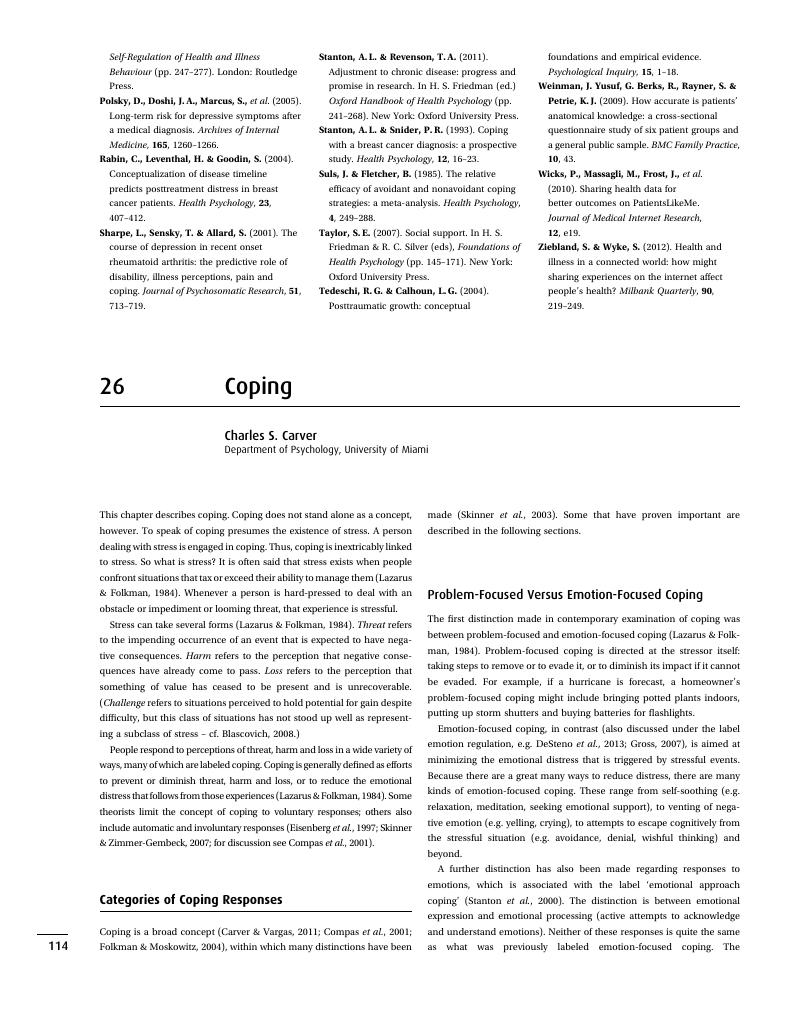26 - Coping
from Theme 5: - Coping With Illness and Stress
Published online by Cambridge University Press: 05 June 2019
Summary

- Type
- Chapter
- Information
- Cambridge Handbook of Psychology, Health and Medicine , pp. 114 - 117Publisher: Cambridge University PressPrint publication year: 2019



